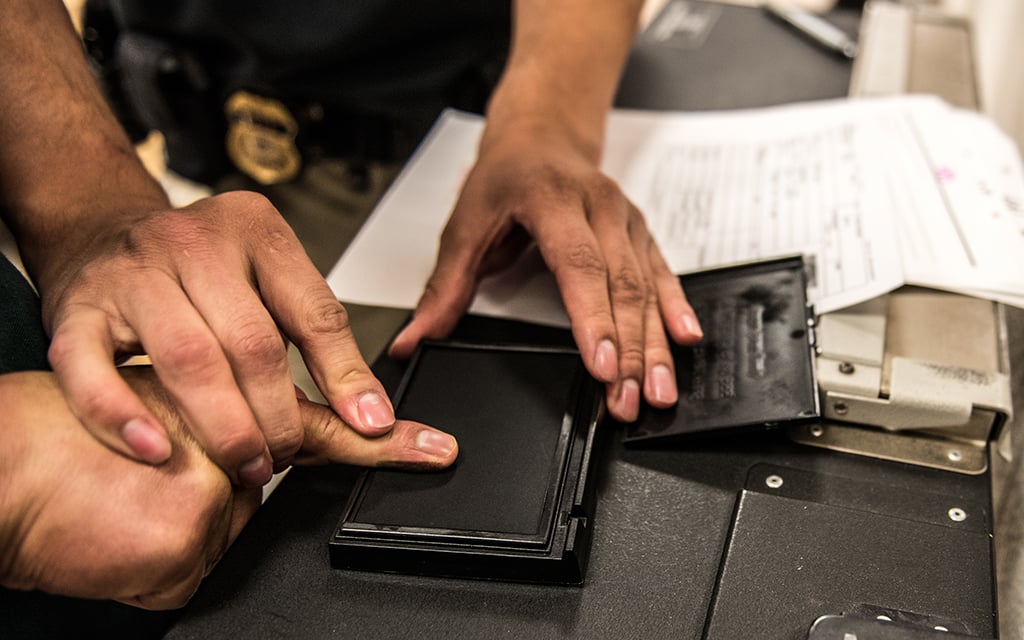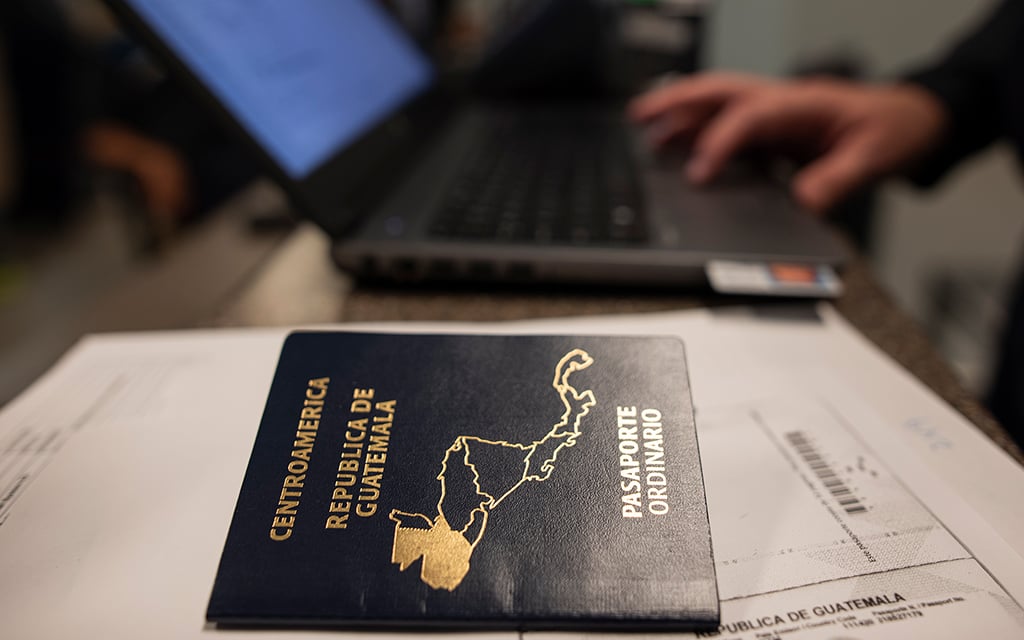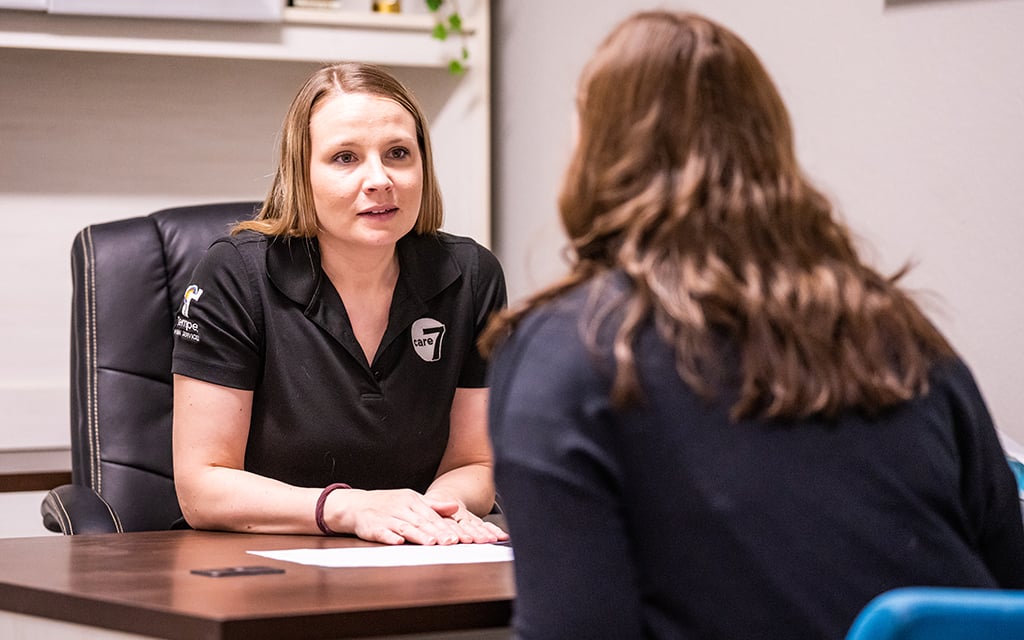PHOENIX – A major update to the U.S. Citizenship and Immigration Services’ (USCIS) T visa application regulations, meant for survivors of human trafficking, went into effect late last month. Those who work in the field of human trafficking say they are already seeing positive effects, yet experts believe that some parts of the rule change complicate the process.
T visas, which may be available for survivors and victims of human trafficking who meet certain conditions, offer a pathway to citizenship. Those eligible must have experienced a “severe form of trafficking in persons” as defined by federal law, which includes sex trafficking and labor trafficking.
After three years with the T visa, survivors and victims are able to establish permanent residency, and the T nonimmigrant status is generally granted for four years.
Applicants go through a rigorous process to get the visa. After the rule change that went into effect on Aug. 28, the visas may now be easier to obtain, according to experts.
“Something with the new T visa rule is that improved bona fide determination, which means that when the application is being reviewed, it’s like a pre-approval almost, where it allows them to get their work permit and apply for those benefits before that official approval comes in,” said Alicia Winchel, an anti-trafficking and victim services manager at the International Rescue Committee.
Winchel said that prior to the rule change, while clients were waiting for their T visa application to be processed, they “don’t have status, they’re not eligible to work, but they’re also not allowed to leave the country.”
Now, instead of having to wait for their application to be fully approved in order to receive work authorization, they may be granted deferred action and allowed to work while they wait.
The visas have a fiscal year cap of 5,000 that has never been reached. Applicants who do not receive a T visa because of the cap can now be put on a waiting list for the following fiscal year.
Evidence requirement changes, according to Ezequiel Dominguez, the associate director of the Office of Sex Trafficking Intervention Research at Arizona State University, could be helpful.
“They talk about improving program efficiency by clarifying reporting and evidentiary requirements on the outset to decrease requests for additional evidence,” Dominguez said. “That … would arguably make the most impact.”
However, Dominguez did express some concerns. He said that the issue of T visas and addressing human trafficking is “multi-layered,” and that “forcing victims to have to participate in structures like police, with law enforcement, again, is not necessarily conducive I think to the well-being of victims and survivors, especially those that are foreign nationals.”
Another possible concern is deportation risk. Yesenia Gamez Gamboa, an attorney at Doralina Law who works with T visas in Tucson, said that while Immigration and Customs Enforcement (ICE) is told to try not to deport victims of human trafficking who want T visas, it’s not technically prohibited.
“In my experience, it’s not likely that they will get deported, but there’s always that chance, depending on the law enforcement,” Gamez Gamboa said.
Another change includes language about a victim’s burden of proof needing a “preponderance” of evidence, meaning that the claim is “more likely than not” true.
“The biggest obstacle, I think, is just collecting evidence. I like this preponderance of the evidence standard, because it really takes into account, and it is clarified in the text of the new rule, that we understand that evidence is difficult for these people,” Gamez Gamboa said.
Requirements for reporting to law enforcement also changed.
A report to law enforcement has to be made to the agency with jurisdiction over where the crime was reported.
“It is a little more difficult to report,” Gamez Gamboa said. “I have had clients, they say, ‘Oh, well, they drove me around to different states, to different cities.’ So then that kind of says, well, who has jurisdiction?” Gamez Gamboa said.
Victims may be able to use reports to the National Human Trafficking Hotline as evidence of reporting to law enforcement if they request or consent for a report to be sent to law enforcement.
The rule change also clarifies how the victim or survivor meets the physical presence requirement, which says that they must have been “physically present in the United States, American Samoa, the Commonwealth of the Northern Mariana Islands, or at a port of entry due to trafficking.”

An August 2024 T visa rule change included updated requirements for reporting trafficking to law enforcement. A report to law enforcement has to be made to the agency with jurisdiction over where the crime was reported. (Photo courtesy of U.S. Immigration and Customs Enforcement)
They can now establish physical presence no matter how long it has been between the trafficking and when they apply for the T visa. There are also now situations where a victim’s departure from the U.S. doesn’t stop them from meeting the requirement.
Victims can also “apply for derivative status for certain family members,” according to the Federal Register’s layout of the rule change. This allows for family members who are “facing a present danger of retaliation as a result of the T-1 nonimmigrant’s escape from the severe form of trafficking or cooperation with law enforcement” to receive T nonimmigrant status. Those family members are also able to receive bona fide determination status.
Some experts said they believe the numerous changes will positively affect T visa applications and approvals.
“I think we already are seeing the improvement,” IRC’s Winchel said. “FY 24 (Fiscal 2024) so far has been the largest amount of approvals in history, and so I’d like to think that that’s because these changes are being made.”
While the USCIS has not yet released fiscal 2024 data, it received the highest number of T visa applications ever in fiscal 2023, at 8,598, and it approved a record number of them: 2,181.
Rebecca Eissenova, the senior staff attorney for ASISTA Immigration Assistance, an attorney and advocate network that works with issues of immigration and gender-based violence, said that the rule change being done through a regulation was “great.”
“Our organization very much applauds USCIS for doing this because it provides durability and predictability for survivors in the face of any kind of changing political winds, which is important to anybody, but especially important for survivors who have had a lot of instability in their lives,” Eissenova said.
For help regarding human trafficking, or if you suspect trafficking, please call the National Human Trafficking Hotline, available 24/7, at 1-888-373-7888.


